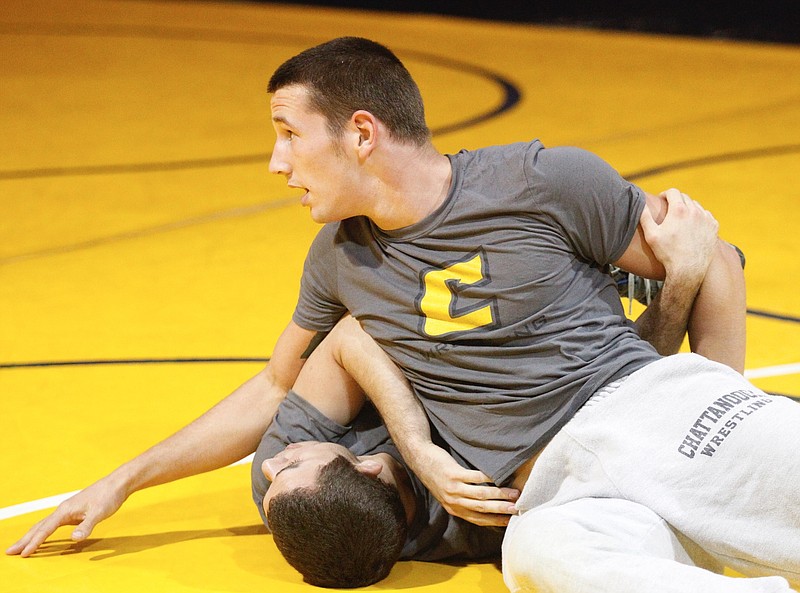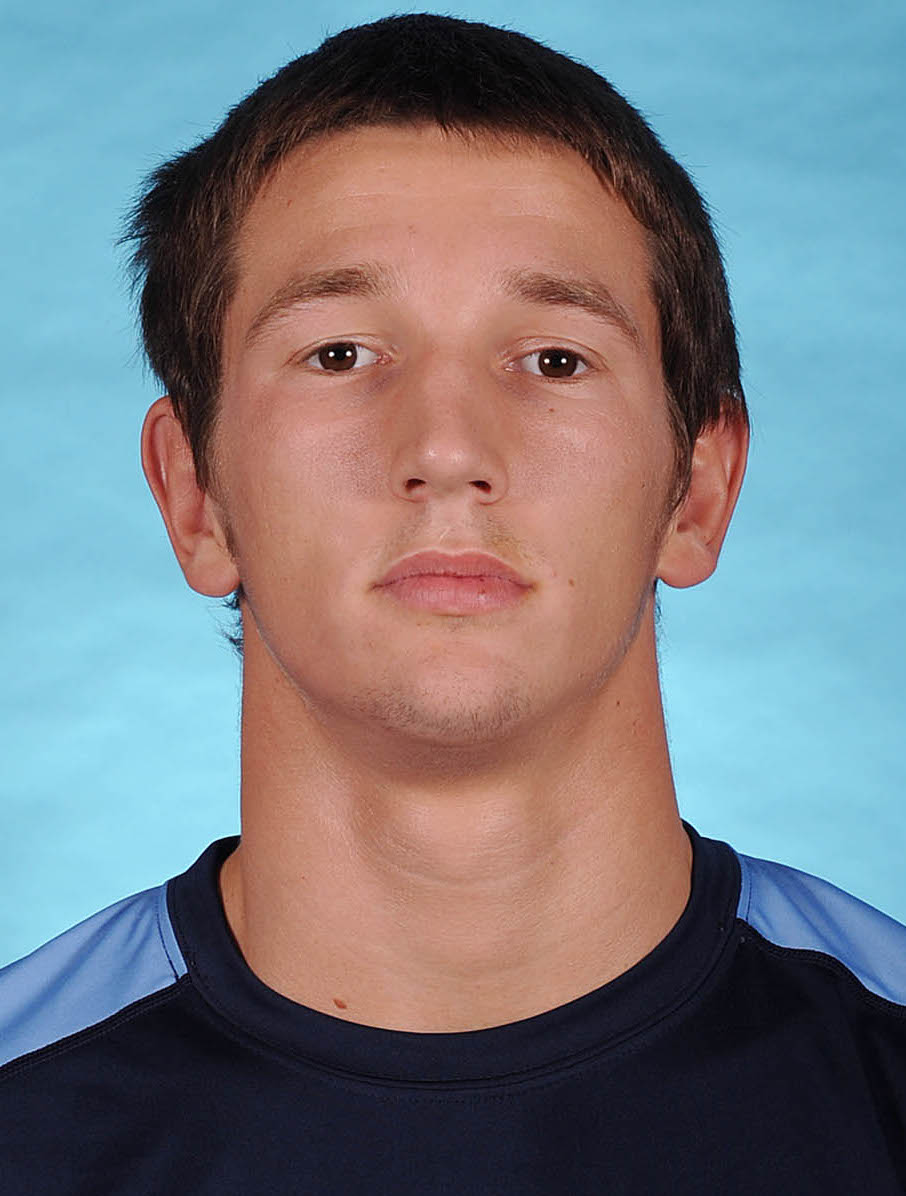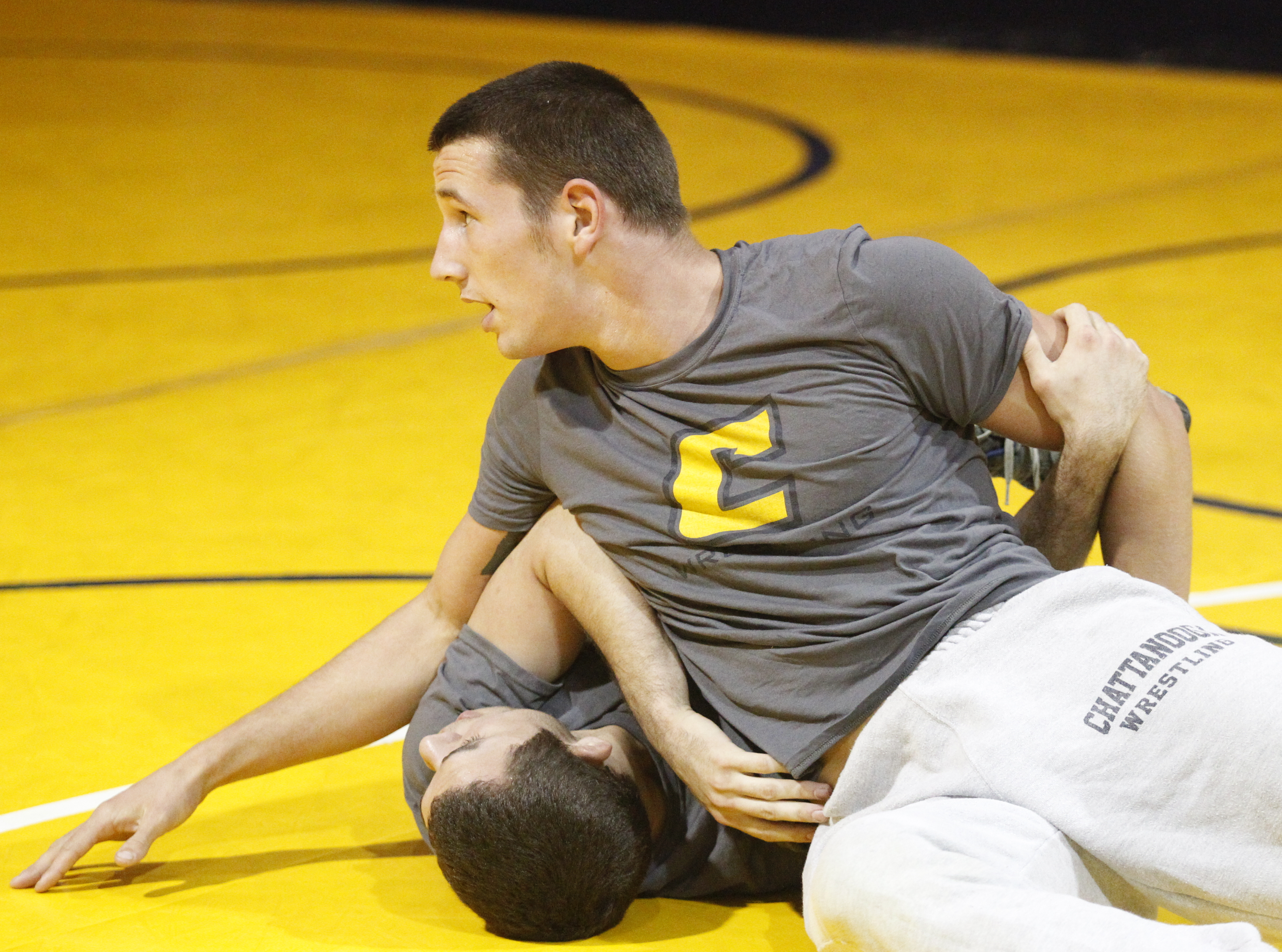Corey Mock, a nationally ranked senior wrestler at the University of Tennessee at Chattanooga, was expelled late Tuesday afternoon after the university's judicial system found him guilty of sexual misconduct.
Because of federal privacy laws, little is known about the details of the case, which was ruled on by an academic professor and not a criminal court judge.
The UTC ruling points to a growing national debate about how university sexual misconduct and sexual assault cases are handled and shows how a much higher standard for sexual consent is being enforced on U.S. college campuses.
A female UTC student brought accusations against Mock, a senior, last spring, Mock's attorney Jeff Rufolo said, and since then he has been on athletic department suspension.
Mock previously wrestled at the University of North Carolina at Chapel Hill, where his father is the program's head coach.
"The only thing we can say is that he is no longer a student at UTC," said UTC wrestling coach Heath Eslinger.
No criminal charges were ever filed against Mock, a decision university officials say is typically left up to the victim. State law does not require instances of sexual assault on college campuses to be reported to police.
Rufolo said his client was accused of having sex with another UTC student "without her consent."
When the case was first considered by a campus judicial officer, also a full-time professor, Mock was found not responsible. However, weeks later, the decision was reversed, his attorney said.
Rufolo said the decision was appealed to university Chancellor Steven R. Angle, but documents show the appeal was denied. The family can petition for reconsideration, or has 60 days to determine whether to appeal the case to Chancery Court. Rufolo said they are considering whether they can handle that financial burden.
"[The judicial officer] issued an order finding the university did not meet its burden [of proof] and that Corey Mock was not responsible and then dismissed all charges," Rufolo said. "The university asked that she reconsider her opinion and with no new evidence, testimony or hearing she changed her mind, issuing another order on Aug. 25 doing an absolutely 180-degree turn.
"With no new evidence and the same findings of fact, the order was identical with the only exception (being) that the university had met its burden of proof and that Corey was found responsible."
The university would not confirm that sequence of events, but documents signed Tuesday show that Mock's expulsion was effective Aug. 25.
For all practical purposes, Mock's collegiate wrestling career is over.
"The [Chancery Court] judge would have to hear the case before the Southern Conference tournament in February and, barring a miracle, I don't see that happening," Rufolo said.
University sexual misconduct and sexual assault proceedings have been highly debated in recent months thanks to several high-profile cases. Some, especially victim advocates, say the secrecy afforded by federal law in campus investigations allows for assaults to be buried.
A 2010 investigation by the Center for Public Integrity found that most students deemed responsible for such an attack face little to no penalties. Earlier this year, the U.S. Department of Education announced an investigation into 55 universities for violations of Title IX, which requires fair and equitable resources for women in an environment free of discrimination.
Last spring, Florida State University's much-criticized handling of sexual assault allegations against Heisman Trophy winner Jameis Winston triggered a national conversation about internal investigations. And a November article in Rolling Stone magazine questioned administrative handling of sexual assault at the University of Virginia.
Others claim that handling a case outside of the legal system denies defendants their due process rights. In some campus sexual assault proceedings defendants are not allowed lawyers or allowed to question the person making accusations.
Still, UTC's process seems to mirror the judicial system. Defendants can subpoena witnesses. They can request discovery of evidence and submit evidence. They are also allowed to have a lawyer and are bound by sworn statements.
"Sometimes students just don't want to go through the legal system," Chuck Cantrell, a UTC spokesman, said. "They don't want to go to court, they don't want to press criminal charges, they just want to make sure someone is aware of what happened."
Caroline Huffaker, coordinator of the sexual assault response team at the Rape Crisis Center near UTC, said the university and campus police force response to sexual assault has constantly improved. Though "hookup culture" and alcohol certainly fuel under-reporting on campus, Huffaker said, the core issue is the same everywhere.
"It's not a UTC problem, it's not a Hamilton County problem, it's a people problem in every community in America," she said.
Heavily redacted documents provided by the university show that UTC's chancellor contemplated the national conversation about rape on college campuses when considering Mock's appeal.
"The recent focus on sexual assault on campuses ... has resulted in heightened attention and care about how colleges and universities define and respond to allegations of sexual assault and address issues of 'consent' that are typically associated with sexual assault allegations," a findings of fact document in the Mock case states.
The document goes on to say that silence does not indicate consent when two students are about to have sex. Both parties must verbally agree to sex prior to the act. This "yes means yes" standard replaces a "no means no" standard, and the burden to get consent is placed on the person initiating sexual activity, the document says.
Five sex offenses were reported on UTC's campus last year, and only two were reported the year before.
Still, experts say those numbers don't reflect the true risk.
A National Institute of Justice study estimates that for every 1,000 women attending college, there are 35 incidents of rape each academic year.
Off-campus sexual victimization is much more common among college women than on-campus victimization, the report adds. Also, less than 5 percent of completed or attempted rapes are reported to law enforcement.
Contact Ward Gossett at wgossett@timesfreepress.com or 423-886-4765. Follow him at Twitter.com/wardgossett.
Contact staff writer Claire Wiseman at cwiseman@timesfreepress.com or 423-757-6347. Follow her on Twitter @claire lwiseman.


